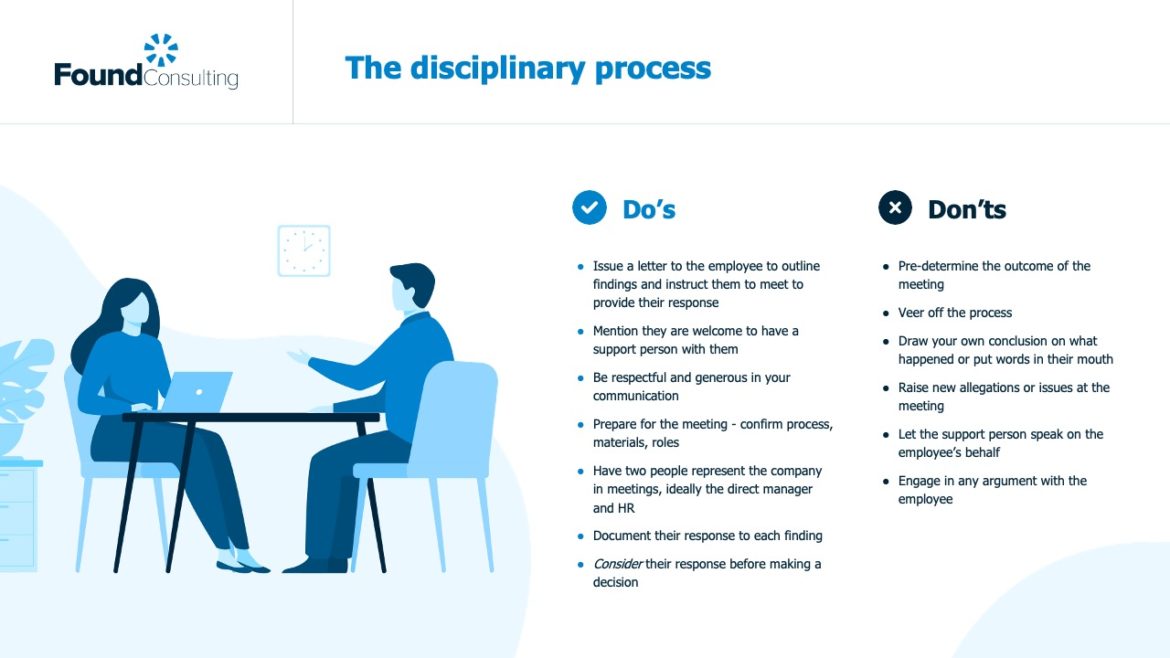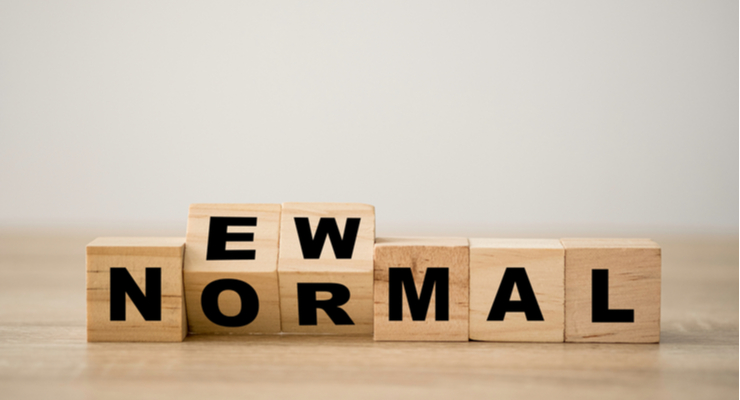The disciplinary process
https://foundconsulting.com.au/wp-content/uploads/2022/04/Found-Consulting-The-disciplinary-process-1024x576.jpeg 1024 576 Found Consulting Found Consulting https://secure.gravatar.com/avatar/b09b8e3bb6d084db2eb753786beaec48742c8910d46c9c6e84f455817b595a32?s=96&d=mm&r=gUnderstanding the disciplinary process, and subsequently engaging with the employee to discuss their action(s), is pivotal to ensuring both parties are heard and a suitable course of action is identified.
Download your copy of the disciplinary process.
If you have any questions, please contact our team who are happy to provide tailored advice for your business and workforce.


